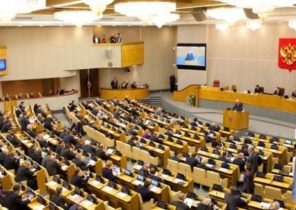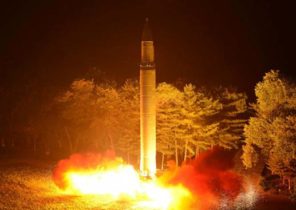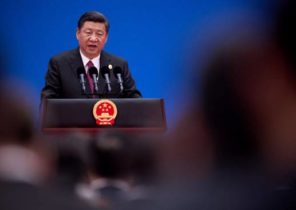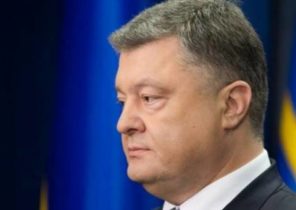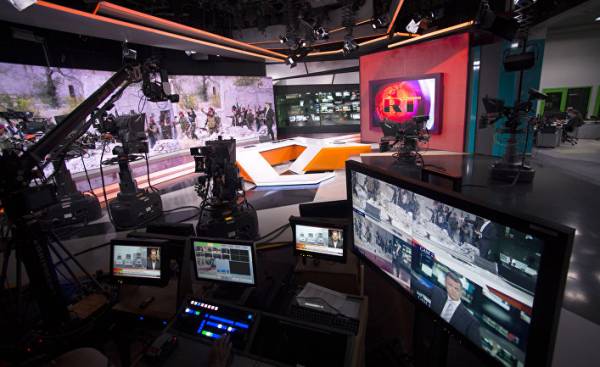
CAMBRIDGE (USA) — Russia’s Intervention in the US elections in 2016, as well as suspicions of its involvement in the hacking of servers of the election headquarters of the President of France Emmanuel Makron, can not surprise anyone, if you remember about how exactly President Vladimir Putin (right) understands soft power. Before his reelection in 2012, Putin said Moscow newspaper that “soft power is a set of tools and methods to achieve foreign policy goals without the use of weapons, but due to the information and other levers of influence”.
From the point of view of the Kremlin, the color revolutions in the CIS countries and the uprising of the Arab spring are examples of the application of US soft power as a new form of hybrid weapons. The idea of soft power was included in the foreign policy Concept of Russia in 2013, and in March 2016 the chief of the General staff of Russia Valery Gerasimov said that to respond to such external threats “to traditional military methods is impossible; they can only be countered by a similar hybrid methods.”
What is soft power? There is the opinion that this term describes any non-military actions, but this is wrong. Soft power is the ability to get what you want through attraction and persuasion, rather than threats of violence or offer of payments.
By itself, soft power is neither good nor bad. Evaluation depends on the goals, means and consequences of our actions. Manipulation of thoughts is not always better manipulation of the weapon (although the objects of manipulation are usually more Autonomous in the mental processes, not physical). Osama bin Laden is neither threatened nor paid people who sent the planes into the world trade center in September 2001 he attracted them with his ideas that they were doing evil.
Soft power of attraction can be used in aggressive purposes. For a long time the state spends billions on public diplomacy and broadcasting in the game for competitive attraction to “battle for hearts and minds.” Such instruments of soft power, as the Marshall plan and the “Voice of America”, helped to determine the outcome of the Cold war.
After the Cold war the Russian elite decided that the purpose of the enlargement of the European Union and NATO and Western efforts to promote democracy, is isolation, and the threat of Russia. In response, they tried to create Russian soft power on the basis of the ideology of traditionalism, sovereignty, national exclusivity. All of it resonated in countries such as Hungary where Prime Minister Viktor Orban praises “illiberal democracy,” from the Diaspora living in States on the border of Russia, an impoverished Central Asian countries, right-wing populist movements in Western Europe.
Information weapons could be used aggressively to weaken the enemy. You can call it “negative soft power”. Attacking the values of other countries can reduce their attractiveness and thereby their relative soft power.
Non-governmental organizations have long understood that transnational corporations are vulnerable to campaigns of discrediting that reduces the value of their brands. According to reports, when the Russians began to interfere in the presidential campaign in the United States in 2015, their goal was to discredit the democratic process in the United States. The election of Donald trump, who praised Putin, was a bonus.
Russian interference in the internal politics of the countries of the European democracy is done with the aim to reduce the attractiveness of NATO, this incarnation of “hard power” of the West. Russia perceives NATO as a threat. In the nineteenth century the outcome of the struggle for hegemony in Europe is mostly dependent from exactly whose arms had won; and today, this outcome also depends on whose interpretation of the events wins.
The information war extend far beyond the limits of soft power, and this is not news. Manipulation of ideas and the electoral process with money has a long history, and Hitler and Stalin were the pioneers of radio attacks. However, broadcasting that looks too promotional, and lose confidence and, therefore, does not attract an audience and does not create soft power influencing her.
International politics becomes a game — a competition takes place for trust, so much more effective generators of soft power are exchange programs, which help develop personal relationships between students and young leaders. In the 1960-ies, radio journalist Edward Murrow said that the most important element of international communications are not tens of thousands of miles of networking electronics, and the last three feet of personal contact.
But what happens in the modern world of social networks where “friends” are a click away, where it is easy to replicate fake friends, fake news where you can create and advertise using paid trolls and mechanical bots? Russia develops all these techniques.
In addition to the official mouthpieces of public diplomacy like Russia Today and Sputnik, Russia has army of paid trolls and bots for the production of fake information, which you can then distribute and submit as supposedly absolutely true. In 2016, the Russian military intelligence has taken a step further by cracking the private network of the National Committee of the Democratic party and stealing information which was then published online in order to harm the presidential candidate Hillary Clinton.
Although information warfare is not new, thanks cybertechnologies it becomes more cheap, fast and efficient, its harder to expose and easier to deny. From the point of view of the consequences of the Russian information war in part was successful, something affecting American elections in 2016, but it was a failure from the point of view of creation of soft power. In the ranking of the London company Portland Consultancy, ranked 30 countries according to the size of the soft power (Soft Power 30), Russia took 27th place.
In 2016, the Finnish Institute of international Affairs found that Russian propaganda had little impact on major Western media and have never caused any policy changes. According to a December survey of the Chicago Council on Global Affairs, the popularity of Russia among Americans is at its lowest level since 1986, when the still ongoing Cold war.
There is a certain irony in the fact that Russia has not used the bonus in the form of trump. The Russian information war has become a hindrance to the President of the United States, because it sharply reduced the soft power of Russia in America. It is believed that in response to “flood of lies” it’s best not to try to respond to every lie, and begin to warn and to protect themselves against the process. As shown by the victory of the Makron, the participants of the European elections in 2017 we can win with this referee.
